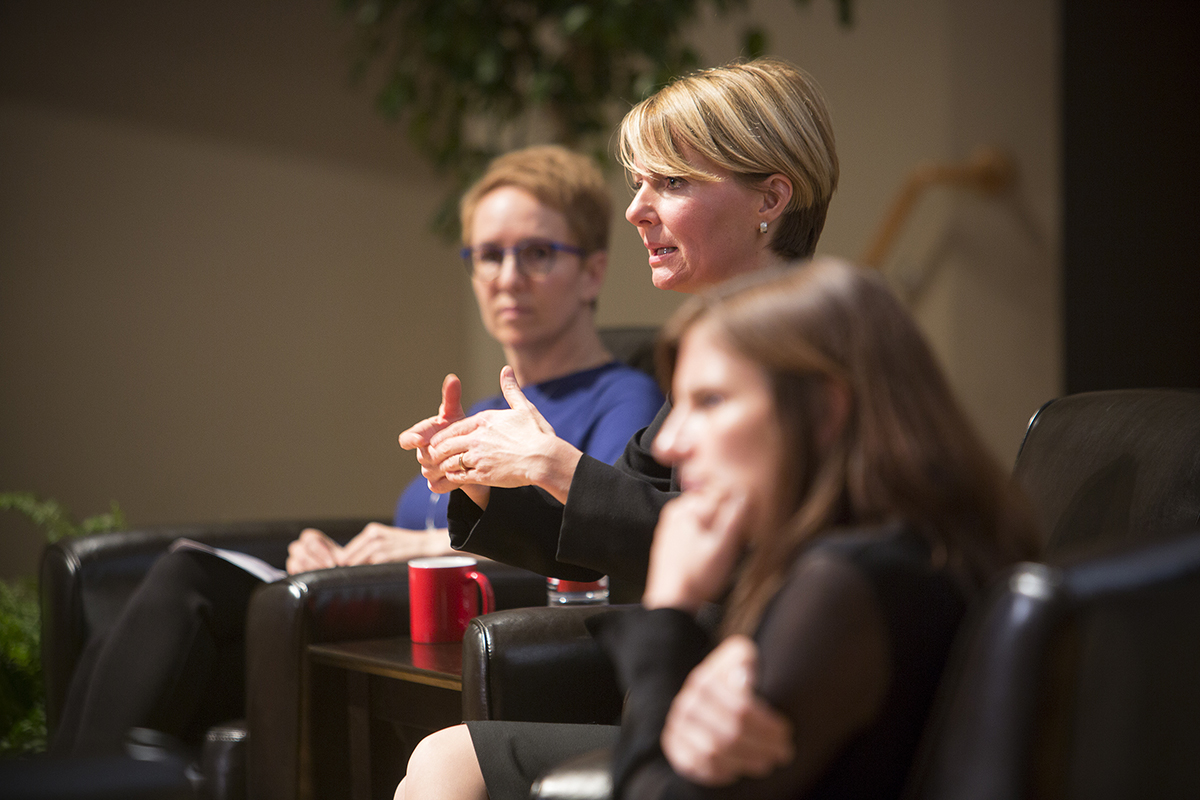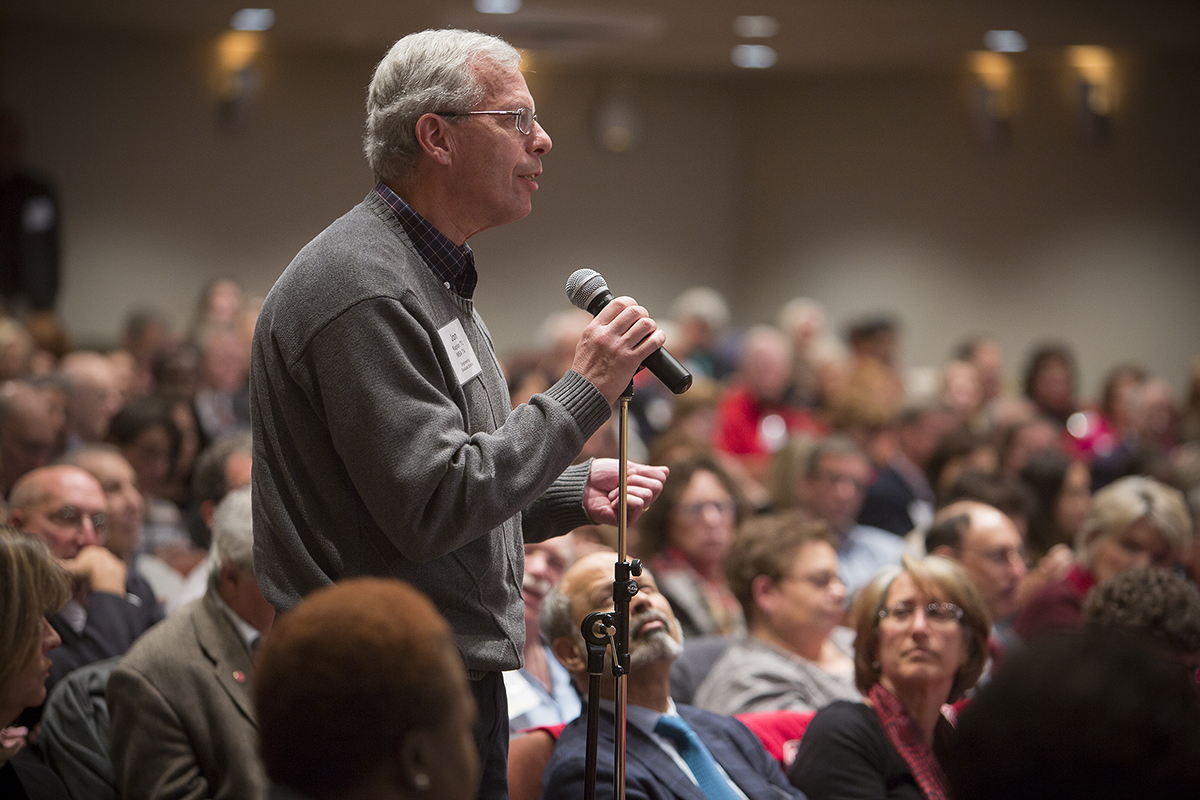Panel discusses core curriculum concerns and liberal education
By Tom Fleischman

In his Oct. 28 State of the University Address, Interim President Hunter Rawlings reaffirmed his commitment to a principle near to his heart and that of his predecessor, the late Elizabeth Garrett: the value of a liberal education in preparing students to be citizens of the world.
That discussion continued after Rawlings’ address in a panel discussion, “My Parents Say I Can’t Study That: Helping Students Find Their Intellectual Home in an Era of Parental Skepticism,” before a near-capacity audience in Statler Auditorium.
Rawlings led the discussion, along with a trio of panelists.
Tracy McNulty, professor of French and comparative literature, began with an update on faculty discussion of the College of Arts and Sciences curricula, particularly graduation requirements that address breadth by having students take one course in each of six areas of study. She said students feel pressured to set themselves on a career path immediately upon arrival at Cornell, adding that two-thirds of Cornell’s undergraduates are enrolled in colleges with a strong professional identity.
“These are very anxious times,” she said, “and one unfortunate consequence of [professionalizing] is that more and more students are averse to broad exploration. They believe that they need to declare a major right away, and map out their entire college experience, so as to have the best chance at being successful after graduation.”

She noted that Gretchen Ritter ’83, the Harold Tanner Dean of the College of Arts and Sciences, has been urging faculty to “really think about the experience of first-year students, in particular.”
McNulty said students approach required courses as either a “hurdle” to get over early or as something to fulfill at the end of their college careers, “and therefore miss out on the opportunity to be exposed to new fields that might really interest them.”
McNulty mentioned that in August the College of Arts and Sciences’ Curriculum Committee proposed three “scenarios” for revamping its undergraduate curriculum.
“One interesting discussion we’ve been having is about how to confront the increasing emphasis on early professionalization,” she said. “Many of us feel that a liberal education should not only provide a foundation for future learning, but should also unsettle and confound – challenge students’ expectations about what they know, or think they should know, and what they want to do with their lives.”
Another idea she said the committee is mulling: Preventing students from declaring a major until after their first year. “That may not be practical in certain fields,” she said, “but as a philosophy, it could be very interesting.”
Julia Thom-Levy, associate professor of physics and provost’s fellow for pedagogical innovation, pointed out the “tension” felt among students and parents between the need for academic specialization and the desire to develop a liberally educated student. “There is tension, but we aspire to bridge it,” she said.
Thom-Levy, who employs the “flipped classroom” model – students gaining knowledge outside of class through assigned reading and videos, and using class time for hands-on work – emphasized that any discussion of curricula must not only focus on what is taught, but how it is taught and the importance of student engagement.
“It cannot be separated from the question about the curriculum,” she said. “I believe we should move away from the passive reception [model] – somebody talking and 300 people listening.”
Verity Platt, associate professor of classics, who teaches courses in several humanities fields, talked about her use of high-impact practices, proven methods for success in student engagement, retention and degree outcomes, particularly for minority students, she said. These include first-year seminars, learning communities, collaborative assignments and projects, and undergraduate research.
Platt showed slides of students in a traveling seminar in the classics department, with students and funding through the College of Arts and Sciences; plaster casts being cleaned in preparation for an exhibition on campus; and students taking part in a multi-campus workshop in which they present papers around a common theme.
Such courses “rely on close collaboration with a professor, in small groups …,” she said. “One of the challenges we face in designing a foundational curriculum is working out how, and if, it’s desirable to incorporate high-impact practices that are very successful but difficult to implement in large-class settings.”
Rawlings noted the quality of learning that small classes provide is essential.
“Let’s face it: We could save a lot of money by teaching only classes of 500 students,” he said. “But I don’t think you’d want your children going to a university where those were the only classes.”
Media Contact
Get Cornell news delivered right to your inbox.
Subscribe